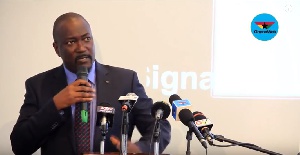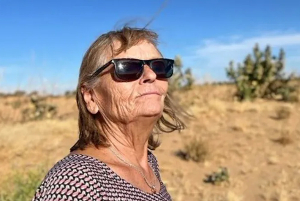Professor Henry Kwasi Prempeh, Executive Director, Ghana Centre for Democratic Development (CDD-Ghana), says democratising local government is key to Ghana's developmental agenda.
He noted that for democratic institutions to function effectively as expected, there was the need to take governance closer to the people.
Prof. Prempeh was contributing to a panel discussion at a national dialogue organised by the National Commission for Civic Education (NCCE) and Accountability, Rule of Law and Anti-corruption Programme (ARAP) with support from the European Union.
The event, on the theme: “Strengthening Our Democratic Institutions” aimed at empowering the citizenry to actively participate in the governance process by contributing to a reduction in corruption, improvement in accountability and compliance to the rule of law and enhanced environmental governance.
The dialogue series organised since 2017 is based on NCCE’s published research titled “Public Perception of the State of Corruption, Public Accountability and Environmental Governance in Ghana”.
The study sampled views of 8672 respondents on reducing corruption, improving public accountability and ensuring effective environmental governance.
Prof. Prempeh also underscored the need for citizens to be empowered through civic education, to help demand accountability; adding that “once we vote every four years, the period between elections, there must be many opportunities for citizens to be really citizens”.
He noted that unfortunately, citizens “vote once every four years and sit and wait for another four years,” saying, the NCCE had a lot to do during that period; "but individually, collectively as civil society we must have tools to demand accountability".
Dr Esther Ofei-Aboagye, Chairperson, STAR-Ghana Foundation, also reiterated the need to decentralise institutions with much emphasis on the functionality of the institutions through the system; from the national level, regional and sub-district levels.
She said as all stakeholders pitched their efforts to strengthen democracy, it was important to look at the low levels of governance, and what the citizens wanted.
Dr Ofei-Aboagye, who underlined the need to resource the institutions, said there was the need to also review the oversight system with the boards and councils offering “the right technical guidance.” Mr Henry Kwabena Kokofu, Executive Director, Environmental Protection Agency (EPA), said institutions responded to the attitudes and inputs of the people, as such, more light needed be thrown on attitudinal change.
He called for a renewed commitment by the State towards the protection of the environment, and said the EPA would push for a prosecutorial authority to be able to prosecute environmental offenders.
General News of Thursday, 17 September 2020
Source: GNA
Democratising local government is key to Ghana’s development - Professor Prempeh
Entertainment












